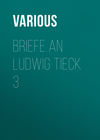Buch lesen: «Blackwood's Edinburgh Magazine, Volume 63, No. 391, May, 1848»
THE CAXTONS. – PART II
CHAPTER VII
When I had reached the age of twelve, I had got to the head of the preparatory school to which I had been sent. And having thus exhausted all the oxygen of learning in that little receiver, my parents looked out for a wider range for my inspirations. During the last two years in which I had been at school, my love for study had returned; but it was a vigorous, wakeful, undreamy love, stimulated by competition, and animated by the practical desire to excel.
My father no longer sought to curb my intellectual aspirings. He had too great a reverence for scholarship not to wish me to become a scholar if possible; though he more than once said to me somewhat sadly, "Master books, but do not let them master you. Read to live, not live to read. One slave of the lamp is enough for a household; my servitude must not be a hereditary bondage."
My father looked round for a suitable academy; and the fame of Dr Herman's "Philhellenic Institute" came to his ears.
Now, this Dr Herman was the son of a German music-master, who had settled in England. He had completed his own education at the university of Bonn; but, finding learning too common a drug in that market to bring the high price at which he valued his own, and having some theories as to political freedom which attached him to England, he resolved upon setting up a school, which he designed as an "era in the history of the human mind." Dr Herman was one of the earliest of those new-fashioned authorities in education, who have, more lately, spread pretty numerously amongst us, and would have given, perhaps, a dangerous shake to the foundations of our great classical seminaries, if those last had not very wisely, though very cautiously, borrowed some of the more sensible principles which lay mixed and adulterated amongst the crotchets and chimeras of their innovating rivals and assailants.
Dr Herman had written a great many learned works against every pre-existing method of instruction: that which had made the greatest noise was upon the infamous fiction of Spelling-Books: "A more lying, roundabout, puzzle-headed delusion than that by which we CONFUSE the clear instincts of truth in our accursed systems of spelling, was never concocted by the father of falsehood." Such was the exordium of this famous treatise. "For instance, take the monosyllable Cat. What brazen forehead you must have, when you say to an infant C, A, T, – spell CAT: that is, three sounds, forming a totally opposite compound – opposite in every detail, opposite in the whole – compose a poor little monosyllable, which, if you would but say the simple truth, the child will learn to spell merely by looking at it! How can three sounds, which run thus to the ear, see—eh—tee, compose the sound cat? Don't they rather compose the sound see-eh-té, or ceaty? How can a system of education flourish that begins by so monstrous a falsehood, which the sense of hearing suffices to contradict? No wonder that the horn-book is the despair of mothers!" From this instance, the reader will perceive that Dr Herman, in his theory of education, began at the beginning! – he took the bull fairly by the horns. As for the rest, upon a broad principle of eclecticism, he had combined together every new patent invention for youthful idea-shooting. He had taken his trigger from Hofwyl; he had bought his wadding from Hamilton; he had got his copper-caps from Bell and Lancaster. The youthful idea! he had rammed it tight! he had rammed it loose! he had rammed it with pictorial illustrations! he had rammed it with the monitorial system! he had rammed in every conceivable way, and with every imaginable ramrod; but I have mournful doubts whether he shot the youthful idea an inch farther than it did under the old mechanism of flint and steel! Nevertheless, as Dr Herman really did teach a great many things too much neglected at schools; as, besides Latin and Greek, he taught a vast variety in that vague complexity now-a-days called "useful knowledge;" as he engaged lecturers on chemistry, engineering, and natural history; as arithmetic and the elements of physical science were enforced with zeal and care; as all sorts of gymnastics were intermingled with the sports of the play-ground; – so the youthful idea, if it did not go farther, spread its shots in a wider direction; and a boy could not stay there five years without learning something, which is more than can be said of all schools! He learned at least to use his eyes, and his ears, and his limbs; order, cleanliness, exercise, grew into habits; and the school pleased the ladies, and satisfied the gentlemen; in a word, it thrived: and Dr Herman, at the time I speak of, numbered more than one hundred pupils. Now, when the worthy man first commenced the task of tuition, he had proclaimed the humanest abhorrence to the barbarous system of corporeal punishment. But, alas! as his school increased in numbers, he had proportionately recanted these honourable and antibirchen ideas. He had, reluctantly, perhaps, – honestly, no doubt, but with full determination, – come to the conclusion, that there are secret springs which can only be discovered by the twigs of the divining-rod; and having discovered with what comparative ease the whole mechanism of his little government, by the admission of the birch-regulator, could be carried on, so, as he grew richer, and lazier, and fatter, the Philhellenic Institute spun along as glibly as a top kept in vivacious movement by the perpetual application of the lash.
I believe that the school did not suffer in reputation from this sad apostacy on the part of the head master; on the contrary, it seemed more natural and English, – less outlandish and heretical. And it was at the zenith of its renown, when, one bright morning, with all my clothes nicely mended, and a large plumcake in my box, I was deposited at its hospitable gates.
Amongst Dr Herman's various whimsicalities, there was one to which he had adhered with more fidelity than to the anti-corporeal punishment articles of his creed; and, in fact, it was upon this that he had caused those imposing words, "Philhellenic Institute," to blaze in gilt capitals in front of his academy. He belonged to that illustrious class of scholars who are now waging war on our popular mythologies, and upsetting all the associations which the Etonians and Harrovians connect with the household names of ancient history. In a word, he sought to restore to scholastic purity the mutilated orthography of Greek appellatives. He was extremely indignant that little boys should be brought up to confound Zeus with Jupiter, Ares with Mars, Artemis with Diana – the Greek deities with the Roman; and so rigidly did he inculcate the doctrine that these two sets of personages were to be kept constantly contradistinguished from each other, that his cross-examinations kept us in eternal confusion.
"Vat," he would exclaim to some new boy fresh from some grammar-school on the Etonian system – "Vat do you mean by dranslating Zeus Jupiter? Is dat amatory, irascible, cloud-compelling god of Olympus, vid his eagle and his ægis, in the smallest degree resembling de grave, formal, moral Jupiter Optimus Maximus of the Roman Capitol? – a god, Master Simpkins, who would have been perfectly shocked at the idea of running after innocent Fraulein dressed up as a swan or a bull! I put dat question to you vonce for all, Master Simpkins." Master Simpkins took care to agree with the Doctor. "And how could you," resumed Dr Herman majestically, turning to some other criminal alumnus – "how could you presume to dranslate de Ares of Homer, sir, by de audacious vulgarism Mars? Ares, Master Jones, who roared as loud as ten thousand men when he was hurt, or as you vill roar if I catch you calling him Mars again! Ares who covered seven plectra of ground; Ares, the man-slayer, with the Mars or Mavors whom de Romans stole from de Sabines! Mars, de solemn and calm protector of Rome! Master Jones, Master Jones, you ought to be ashamed of yourself!" – and then waxing enthusiastic, and warming more and more into German gutturals and pronunciation, the good Doctor would lift up his hands, with two great rings on his thumbs, and exclaim – "Und Du! and dou, Aphroditè; dou, whose bert de Seasons velcomed! dou, who didst put Atonis into a coffer, and den tid durn him into an anemone; dou to be called Venus by dat snivel-nosed little Master Budderfield! Venus, who presided over Baumgartens and funerals, and nasty tinking sewers! Venus Cloacina, – O mein Gott! Come here, Master Budderfield; I must a flog you for dat; I must indeed, liddle boy!" As our Philhellenic preceptor carried his archæological purism into all Greek proper names, it was not likely that my unhappy baptismal would escape. The first time I signed my exercise, I wrote "Pisistratus Caxton" in my best round-hand. "And dey call your baba a scholar!" said the Doctor contemptuously. "Your name, sir, is Greek; and, as Greek, you vill be dood enough to write it, vith vat you call an e and an o– P, E, I, S, I, S, T, R, A, T, O, S; and you vill alway put de accent over de i. Vat can you expect for to come to, Master Caxton, if you don't pay de care dat is proper to your own dood name – de e, and de o, and de accent? Ach! let me see no more of your vile corruptions! Mein Gott! Pi! ven de name is Pei!"
The next time I wrote home to my father, modestly implying that I was short of cash, that a trap-bat would be acceptable, and that the favourite goddess amongst the boys (whether Greek or Roman was very immaterial) was Diva Moneta, I felt a glow of classical pride in signing myself, "your affectionate Peísistratos." The next post brought a sad damper to my scholastic exultation. The letter ran thus:
"My dear Son, – I prefer my old acquaintances Thucydides and Pisistratus to Thoukudídes and Peísistratos. Horace is familiar to me, but Horatius is only known to me as Cocles. Pisistratus can play at trap-ball; but I find no authority in pure Greek to allow me to suppose that that game was known to Peísistratos. I should be too happy to send you a drachma or so, but I have no coins in my possession current at Athens at the time when Pisistratus was spelt Peísistratos. Your affectionate father,
"A. Caxton."
Verily, here indeed was the first practical embarrassment produced by that melancholy anachronism which my father had so prophetically deplored. However, nothing like experience to prove the value of compromise in this world! Peísistratos continued to write exercises, and a second letter from Pisistratus was followed by the trap-bat.
CHAPTER VIII
I was somewhere about sixteen when, on going home for the holidays, I found my mother's brother settled among the household lares. Uncle Jack, as he was familiarly called, was a light-hearted, plausible, enthusiastic, talkative fellow, who had spent three small fortunes in trying to make a large one.
Uncle Jack was a great speculator; but in all his speculations he never affected to think of himself, – it was always the good of his fellow-creatures that he had at heart, and in this ungrateful world fellow-creatures are not to be relied upon! On coming of age, he inherited £6000 from his maternal grandfather. It seemed to him then his fellow-creatures were sadly imposed upon by their tailors. Those ninth-parts of humanity notoriously eked out their fractional existence by asking nine times too much for the clothing which civilisation, and perhaps a change of climate, render more necessary to us than to our ancestors the Picts. Out of pure philanthropy, Uncle Jack started "a Grand National Benevolent Clothing Company," which undertook to supply the public with inexpressibles of the best Saxon cloth at 7s. 6d. a pair; coats, superfine, £1, 18s.; and waistcoats at so much per dozen. They were all to be worked off by steam. Thus the rascally tailors were to be put down, humanity clad, and the philanthropists rewarded (but that was a secondary consideration) with a clear return of 30 per cent. In spite of the evident charitableness of this Christian design, and the irrefragable calculations upon which it was based, this company died a victim to the ignorance and unthankfulness of our fellow-creatures. And all that remained of Jack's £6000 was a fifty-fourth share in a small steam-engine, a large assortment of ready-made pantaloons, and the liabilities of the directors.
Uncle Jack disappeared, and went on his travels. The same spirit of philanthropy which characterised the speculations of his purse attended the risks of his person. Uncle Jack had a natural leaning towards all distressed communities: if any tribe, race, or nation was down in the world, Uncle Jack threw himself plump into the scale to redress the balance. Poles, Greeks, (the last were then fighting the Turks,) Mexicans, Spaniards, – Uncle Jack thrust his nose into all their squabbles! Heaven forbid I should mock thee, poor Uncle Jack! for those generous predilections towards the unfortunate; only, whenever a nation is in misfortune, there is always a job going on! The Polish cause, the Greek cause, the Mexican cause, and the Spanish cause, are necessarily mixed up with loans and subscriptions. These Continental patriots, when they take up the sword with one hand, generally contrive to thrust the other deep into their neighbours' breeches' pockets. Uncle Jack went to Greece, thence he went to Spain, thence to Mexico. No doubt he was of great service to these afflicted populations, for he came back with unanswerable proof of their gratitude in the shape of £3000. Shortly after this appeared a prospectus of the "New, Grand, National Benevolent Insurance Company, for the Industrious Classes." This invaluable document, after setting forth the immense benefits to society arising from habits of providence, and the introduction of insurance companies – proving the infamous rate of premiums exacted by the existent offices, and their inapplicability to the wants of the honest artisan, and declaring that nothing but the purest intentions of benefiting their fellow-creatures, and raising the moral tone of society, had led the directors to institute a new society, founded on the purest principles and the most moderate calculations – proceeded to demonstrate that twenty-four and a half per cent was the smallest possible return the shareholders could anticipate. The company began under the fairest auspices: an archbishop was caught as president, on the condition always that he should give nothing but his name to the society. Uncle Jack – more euphoniously designated as "the celebrated philanthropist, John Jones Tibbets, Esquire" – was honorary secretary, and the capital stated at two millions. But such was the obtuseness of the industrious classes, so little did they perceive the benefits of subscribing one-and-ninepence a-week from the age of twenty-one to fifty, in order to secure at the latter age the annuity of £18, that the company dissolved into thin air, and with it dissolved also Uncle Jack's £3000. Nothing more was then seen or heard of him for three years. So obscure was his existence, that on the death of an aunt, who left him a small farm in Cornwall, it was necessary to advertise that "If John Jones Tibbets, Esq., would apply to Messrs Blunt and Tin, Lothbury, between the hours of ten and four, he would hear of something to his advantage." But, even as a conjuror declares that he will call the ace of spades, and the ace of spades, that you thought you had safely under your foot, turns up on the table – so with this advertisement suddenly turned up Uncle Jack. With inconceivable satisfaction did the new land-owner settle himself in his comfortable homestead. The farm, which was about two hundred acres, was in the best possible condition, and saving one or two chemical preparations, which cost Uncle Jack, upon the most scientific principles, thirty acres of buckwheat, the ears of which came up, poor things, all spotted and speckled, as if they had been inoculated with the small-pox, Uncle Jack for the first two years was a thriving man. Unluckily, however, one day Uncle Jack discovered a coal-mine in a beautiful field of swedish turnips; in another week the house was full of engineers and naturalists, and in another month appeared, in my uncle's best style, much improved by practice, a prospectus of "the Grand, National, anti-Monopoly Coal Company, instituted on behalf of the poor Householders of London, and against the Monster Monopoly of the London Coal Wharfs.
"A vein of the finest coal has been discovered on the estates of the celebrated philanthropist, John Jones Tibbets, Esq. This new mine, the Molly Wheel, having been satisfactorily tested by that eminent engineer, Giles Compass, Esq., promises an inexhaustible field to the energies of the benevolent and the wealth of the capitalist. It is calculated that the best coals may be delivered, screened, at the mouth of the Thames, for 18s. per load, yielding a profit of not less than forty-eight per cent to the shareholders. Shares, £50, to be paid in five instalments. Capital to be subscribed, one million. For shares, early application must be made to Messrs Blunt and Tin, solicitors, Lothbury."
Here, then, was something tangible for fellow-creatures to go on – there was land, there was a mine, there was coal, and there actually came shareholders and capital. Uncle Jack was so persuaded that his fortune was now to be made, and had, moreover, so great a desire to share the glory of ruining the monster monopoly of the London wharfs, that he refused a very large offer to dispose of the property altogether, remained chief shareholder, and removed to London, where he set up his carriage, and gave dinners to his fellow-directors. For no less than three years did this company flourish, having submitted the entire direction and working of the mines to that eminent engineer, Giles Compass – twenty per cent was paid regularly by that gentleman to the shareholders, and the shares were at more than cent per cent, when, one bright morning, when least expected, Giles Compass, Esq. removed himself to that wider field for genius like his, the United States; and it was discovered that the mine had for more than a year run itself into a great pit of water, and that Mr Compass had been paying the shareholders out of their own capital. My uncle had the satisfaction this time of being ruined in very good company: three doctors of divinity, two county members, a Scotch lord, and an East India director, were all in the same boat, – that boat which went down with the coal-mine into the great water pit!
It was just after this event that Uncle Jack, sanguine and light-hearted as ever, suddenly recollected his sister, Mrs Caxton; and not knowing where else to dine, thought he would repose his limbs under my father's trabes citrea, which the ingenious W. S. Landor opines should be translated "mahogany." You never saw a more charming man than Uncle Jack. All plump people are more popular than thin people. There is something jovial and pleasant in the sight of a round face! What conspiracy could succeed when its head was a lean and hungry-looking fellow, like Cassius? If the Roman patriots had had Uncle Jack amongst them, perhaps they would never have furnished a tragedy to Shakspeare. Uncle Jack was as plump as a partridge – not unwieldy, not corpulent, not obese, not "vastus," which Cicero objects to in an orator – but every crevice comfortably filled up. Like the ocean, "time wrote no wrinkles on his glassy (or brassy) brow." His natural lines were all upward curves, his smile most ingratiating, his eye so frank, even his trick of rubbing his clean well-fed English-looking hands, had something, about it coaxing and debonnair, something that actually decoyed you into trusting your money into hands so prepossessing. Indeed, to him might be fully applied the expression – "Sedem animæ in extremis digitis habet;" "He had his soul's seat in his finger ends." The critics observe that few men have ever united in equal perfection the imaginative with the scientific or musing faculties. "Happy he," exclaims Schiller, "who combines the enthusiast's warmth with the worldly man's light" – light and warmth, Uncle Jack had them both. He was a perfect symphony of bewitching enthusiasm and convincing calculation. Dicæopolis in the Acharnenses, in presenting a gentleman called Nicharchus to the audience, observes – "He is small, I confess, but there is nothing lost in him: all is knave, that is not fool." Parodying the equivocal compliment, I may say, that though Uncle Jack was no giant, there was nothing lost in him. Whatever was not philanthropy was arithmetic, and whatever was not arithmetic was philanthropy. He would have been equally dear to Howard and to Cocker. Uncle Jack was comely, too – clear-skinned and florid, had a little mouth, with good teeth, wore no whiskers, shaved his beard as close as if it were one of his grand national companies; his hair, once somewhat sandy, was now rather grayish, which increased the respectability of his appearance, and he wore it flat at the sides and raised in a peak at the top; his organs of constructiveness and ideality were pronounced by Mr Squills to be prodigious, and those freely developed bumps gave great breadth to his forehead. Well-shaped, too, was Uncle Jack, about five feet eight, the proper height for an active man of business. He wore a black coat; but to make the nap look the fresher, he had given it the relief of gilt buttons, on which were wrought a small crown and anchor; at a distance this button looked like the king's button, and gave him the air of one who has a place about Court. He always wore a white neckcloth without starch, a frill and a diamond pin; which last furnished him with observations upon certain mines of Mexico, which he had a great but hitherto unsatisfied desire of seeing worked by a Grand National United Britons Company. His waistcoat of a morning was pale buff – of an evening, embroidered velvet; wherewith were connected sundry schemes of an "association for the improvement of native manufactures." His trousers, matutinally, were of the colour vulgarly called "blotting-paper;" and he never wore boots, which, he said, unfitted a man for exercise, but short drab gaiters and square-toed shoes. His watch-chain was garnished with a vast number of seals: each seal, indeed, represented the device of some defunct company, and they might be said to resemble the scalps of the slain, worn by the aboriginal Iroquois, concerning whom indeed he had once entertained philanthropic designs, compounded of conversion to Christianity on the principles of the English Episcopal Church, and of an advantageous exchange of beaver-skins for bibles, brandy, and gunpowder.
That Uncle Jack should win my heart was no wonder; my mother's he had always won from her earliest recollection of his having persuaded her to let her great doll (a present from her godmother) be put up to a raffle for the benefit of the chimney-sweeps. "So like him – so good!" she would often say pensively; "they paid sixpence a-piece for the raffle – twenty tickets, and the doll cost £2. Nobody was taken in, and the doll, poor thing, (it had such blue eyes!) went for a quarter of its value. But Jack said nobody could guess what good the ten shillings did to the chimney-sweeps!" Naturally enough, I say, my mother liked Uncle Jack! but my father liked him quite as well, and that was a strong proof of my uncle's powers of captivation. However, it is noticeable that when some retired scholar is once interested in an active man of the world, he is more inclined to admire him than others are. Sympathy with such a companion gratifies at once his curiosity and his indolence: he can travel with him, scheme with him, fight with him, go with him through all the adventures of which his own books speak so eloquently, and all the time never stir from his easy-chair. My father said "that it was like listening to Ulysses to hear Uncle Jack!" Uncle Jack, too, had been in Greece and Asia Minor, gone over the site of the siege of Troy, eat figs at Marathon, shot hares in the Peloponnesus, and drank three pints of brown stout at the top of the Great Pyramid.
Therefore, Uncle Jack was like a book of reference to my father. Verily at times he looked on him as a book, and took him down after dinner as he would a volume of Dodwell or Pausanias. In fact, I believe that scholars who never move from their cells are not the less an eminently curious, bustling, active race, rightly understood. Even as old Burton saith of himself – "Though I live a collegiate student, and lead a monastic life, sequestered from those tumults and troubles of the world, I hear and see what is done abroad, how others run, ride, turmoil and macerate themselves in town and country," which citation sufficeth to show that scholars are naturally the most active men of the world, only that while their heads plot with Augustus, fight with Julius, sail with Columbus, and change the face of the globe with Alexander, Attila, or Mahomet, there is a certain mysterious attraction, which our improved knowledge of mesmerism will doubtless soon explain to the satisfaction of science, between that extremer and antipodal part of the human frame, called in the vulgate "the seat of honour," and the stuffed leather of an armed-chair. Learning somehow or other sinks down to that part in which it was first driven in, and produces therein a leaden heaviness and weight, which counteract those lively emotions of the brain, that might otherwise render students too mercurial and agile for the safety of established order. I leave this conjecture to the consideration of experimentalists in the physics.
I was still more delighted than my father with Uncle Jack. He was full of amusing tricks, could conjure wonderfully, make a bunch of keys dance a hornpipe, and if ever you gave him half-a-crown, he was sure to turn it into a halfpenny. He was only unsuccessful in turning my halfpennies into half-crowns.
We took long walks together, and in the midst of his most diverting conversation my uncle was always an observer. He would stop to examine the nature of the soil, fill my pockets (not his own) with great lumps of clay, stones, and rubbish, to analyse when he got home, by the help of some chemical apparatus he had borrowed from Mr Squills. He would stand an hour at a cottage door, admiring the little girls who were straw-platting, and then walk into the nearest farm-houses, to suggest the feasibility of "a national straw-plat association." All this fertility of intellect was, alas! wasted in that "ingrata terra" into which Uncle Jack had fallen. No squire could be persuaded into the belief that his mother-stone was pregnant with minerals; no farmer talked into weaving straw-plat into a proprietary association. So, even as an ogre, having devastated the surrounding country, begins to cast a hungry eye on his own little ones, Uncle Jack's mouth, long defrauded of juicier and more legitimate morsels, began to water for a bite of my innocent father.




















